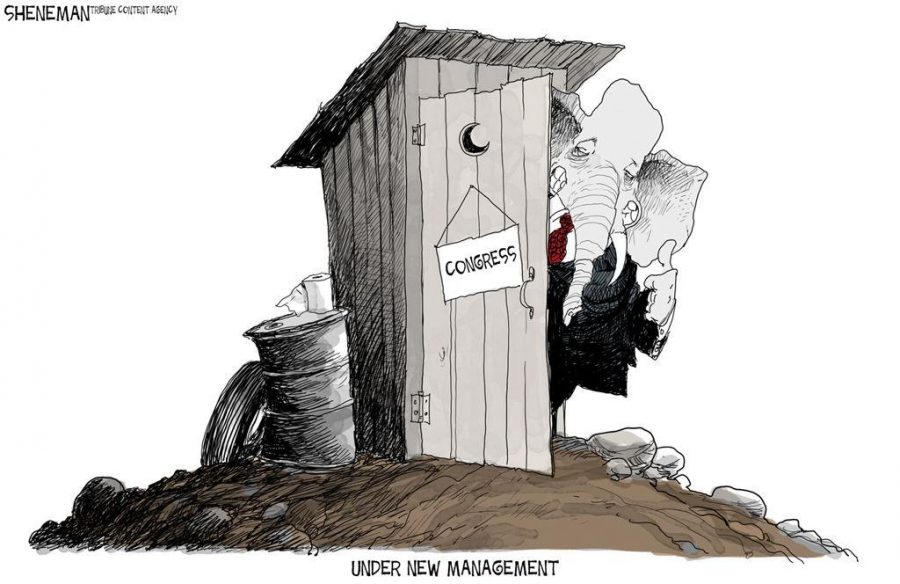Talkin’ ’bout my generation: Why Independents should be the millennials’ choice
November 10, 2014
It’s morning in America.
Well, not really. But anything, and I mean anything, is better than the cold, dark night of the last two years. If anything has made me see the wisdom of Winston Churchill’s oft-repeated quote, “democracy is the worst form of government, except all the others,” it is the 113th Congress.
The common gripe among pundits is that the last Congress has been the least productive in history. Per the Washington Post, that claim is demonstrated by this past Congress passing a historically low amount of total bills — about 250 laws in total, which is the lowest amount of legislation passed since 1973. Not that quantity is preferable to quality in bills, but this Congress couldn’t even do the most simple of government tasks, like pass a budget.
After last Tuesday’s elections, though, this mess is finally behind us — which is good, because coming of age during this time of fierce bipartisanship has caused much disillusion amongst millenials like me when it comes to our political system.
But will a new, Republican Congress really be any different from the last one? The majority of Americans don’t think so. According to a Gallup poll released last week, 29 percent of Americans trust Republicans to control Congress, 27 percent trust Democrats and 40 percent feel there is no difference. It must be hard to differentiate between two sides that are both equally good at not doing anything other than bicker.
Thus, if the next two years turn into another session of partisan tit for tat, then you can expect to see more Independent candidates making noise. In 2012, we saw the second Independent senator, Angus King of Maine, elected. This year, Greg Orman, a former Republican congressman who ran as an Independent, almost defeated the Republican incumbent in Kansas to become the third Independent senator, while Larry Pressler of South Dakota, another former Republican congressman turned Independent, was in a tight three-way race for an open Senate spot — he came in third with a surprising 17 percent of the vote.
The common thread between these three Independent candidates is their diverse positions: Socially liberal (pro-choice, pro-marriage equality), environmentally conscious (accepting of global warming) but fiscally responsible (balance the budget, slash spending where appropriate).
That is, everything millennials find important.
According to studies by Harstad Strategic Research and the Harvard Institute of Politics, millennials are widely in agreement on socially progressive policies. But, the economic issues become a lot trickier — some millennials favor more economic intervention by the government, while some want less. The new crop of Independents reflects this spread: While Orman has been against the Affordable Care Act and agrees with Paul Ryan on some issues, Pressler has come out in favor of higher taxes on the rich.
Thus, Independent candidates are more representative of millennials’ strong stances on social issues, and also of their diverse ideas on economic policy. This is important to note, because, as millennials reach voting age — and adulthood — at a higher rate, these opinions are going to matter more.
Of course, both of the mainstream parties have noticed this, and both have certainly paid lip service to the youth vote, but nothing more — who can forget the Obama administration placing emojis in its report on millennials?
As a generation that embraces change and new ideas, millennials should carry that mindset into politics. Unfortunately, new parties are hard to come by in a first-past-the-post democracy like the United States. Such an electoral system only rewards winning, and it is hard for small, new parties to take a majority, or even a plurality, in any given district. Modern political parties need to disseminate ideas and raise money quickly. If the party can’t win within a couple years, it is probably doomed to extinction.
However, this is the generation of Twitter and KickStarter. If any generation is diverse enough to support so many different viewpoints, but also connected enough to finance and communicate a campaign overnight, it’s millennials. Imagine putting all the time and effort of Kony 2012 or that stupid potato salad thing into an actual political campaign. That would be a force to be reckoned with and one that would make establishment parties pay attention.
Therefore, our generation should take a look around during these next two years. If the Republicans and Democrats play nice, maybe some of them are still worth a vote. If they don’t, it might be time to work our magic.
Email Stephen at [email protected]



